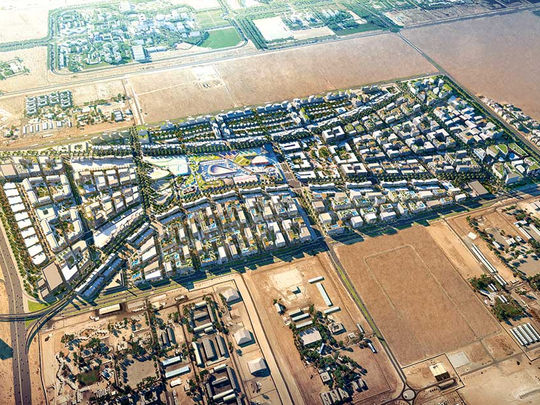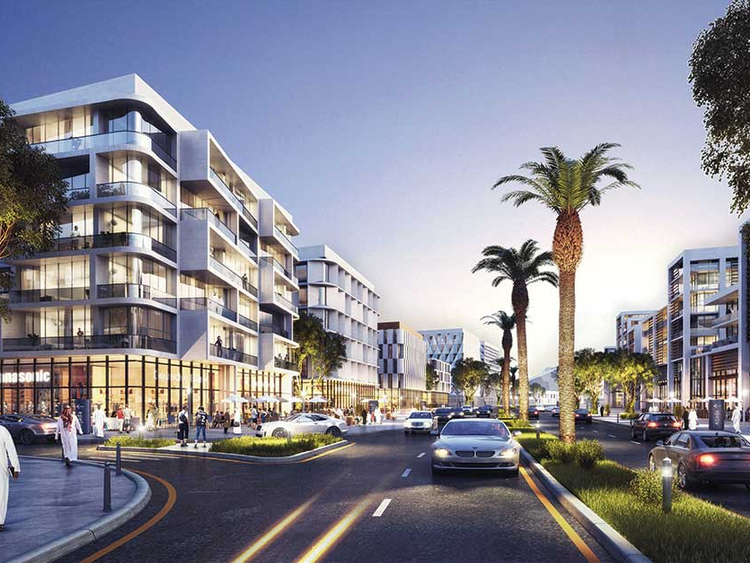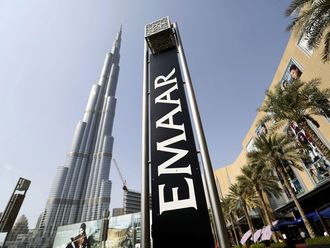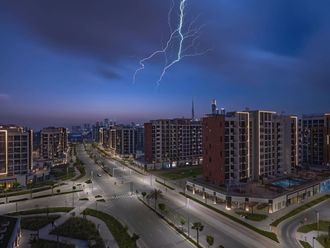
Dubai: The developer behind what is to be Sharjah’s biggest private sector development — at Dh24 billion it sure is massive — does not believe in waiting around to reach project milestones. The plan is to have the first residents move into “Aljada” by the end of next year.
What makes the target interesting in itself is that the main contractor for the first phase of residential works is to be announced and work to begin by March. The CEO at Arada, Ahmad Al Khoshaibi, is not unduly fazed by the tight project timelines it has set for itself.
“One of the issues we find in the region is that developers promise a lot,” said Alkhoshaibi. “Our guidelines are straightforward — if we show something in our marketing brochures, we need to deliver give it to the buyers. We don’t want situations where the renderings show something and then when it is finished, the feature is not included or lacks in quality.
- Ahmad Al Khoshaibi | CEO at Arada
“Most construction delays are related to cash flow problems at the developers. If the bureaucratic delays are eliminated, any developer can make the payments on time.
“We speak to the contractors and 70 per cent say they can deliver to our schedules, which is to finish the whole development in seven to eight years. A lot of contractors are as yet not being utilised to a very high percentage.”
Aljada takes up what has been billed as the last untouched piece of land — 2.2 million square metres — in the centre of the emirate, with landmarks such as the SAIF Zone, the American University and the airport as its immediate neighbours.
So far, the developer has had a couple of sales releases and seen buyers pick up about 750 units. Phase 1 will have 1,000 apartments, with prices at Dh750 a square foot.
“There will definitely be an increase in prices for further phases,” the CEO said. “A developer can discount the initial phases and then add in subsequent ones. That’s also a way to reward the early buyers.
“Our cost to build will be higher than the usual product you find in Sharjah and that’s because the open spaces, the greenery and all the other features add to the costs” (Aljada on completion will sport quite a bit of green, with the master plan showing a 2.2 kilometre stretch of parkland right at the residents’ doorsteps.) Another thing the developer does not want to see happen is that Aljada remains one giant construction site even when the first residents have moved in. “The first phases should not be made to feel the effect of subsequent phases,” said Alkhoshaibi. “This is a main issue in the UAE.
“A lot of people complain about going to communities and find the features such as swimming pools have not been built. And that it’s put off until the final phase. That’s not going to happen at Aljada.”
Given the scale of the project, it will be quite a balancing act that the developer and its contractors need to carry out. Aljada is much more than a cluster of low-rise apartment buildings around a park.
For one, there is the Central Hub, part of the first phase of development and which will feature multiple entertainment attractions, F&B and more. The cost to build this component alone could be about Dh1 billion.
There are going to be at least four hotels, two being five-star, that Arada will build and have operators manage them. The master plan has also marked out locations for schools, and retail areas along 2.2 kilometres each stretch either side. (Arada has filed offers of Dh1 billion to sell off the retail component, but the company said that it keep holding it.) A further element will be a ‘commercial business park’, of 500,000 square metres and which is yet to formally launched. Two of the planned hotels will be in this cluster.
“We aim for Aljada to be a transformational project from every aspect,” the CEO added. “If anything, the sheer scale of it would pivot Arada onto bigger opportunities — and not just in Sharjah. Our objective — and it’s being hammered into us constantly by our shareholders — is to over deliver. In fact, we under promise and over deliver.”
Arada has no plans to be confined by geography
Arada, a joint venture owned by two high-profile Sharjah and Saudi investors, could announce its first project outside of Sharjah this year itself, with Dubai being the top choice.
“Sharjah was always meant to be the first stop, but never the only one,” said Ahmad Alkhoshaibi, CEO. “First become the leader in Sharjah (real estate) followed by Dubai (where we can build a fairly strong presence) and followed by Saudi Arabia.
“We do own land bank outside of Sharjah — greenfield sites in Italy and Romania, and in Dubai. But it is not necessary that we will only launch on that we already have in Dubai.”
But why take on new projects when Arada could conceivably do a lot more within Sharjah itself? “Launching projects in multiple markets will give investors further choice,” the CEO said. “Some buyers will be more favourable to buying from us in one particular market and not the other.
“It’s also the same reason why we will eventually get into Europe — it’s more about diversifying the portfolio and we want customers who come to Arada yo have a choice of products and locations. If you limit them to an area, you are potentially losing certain customers.”













